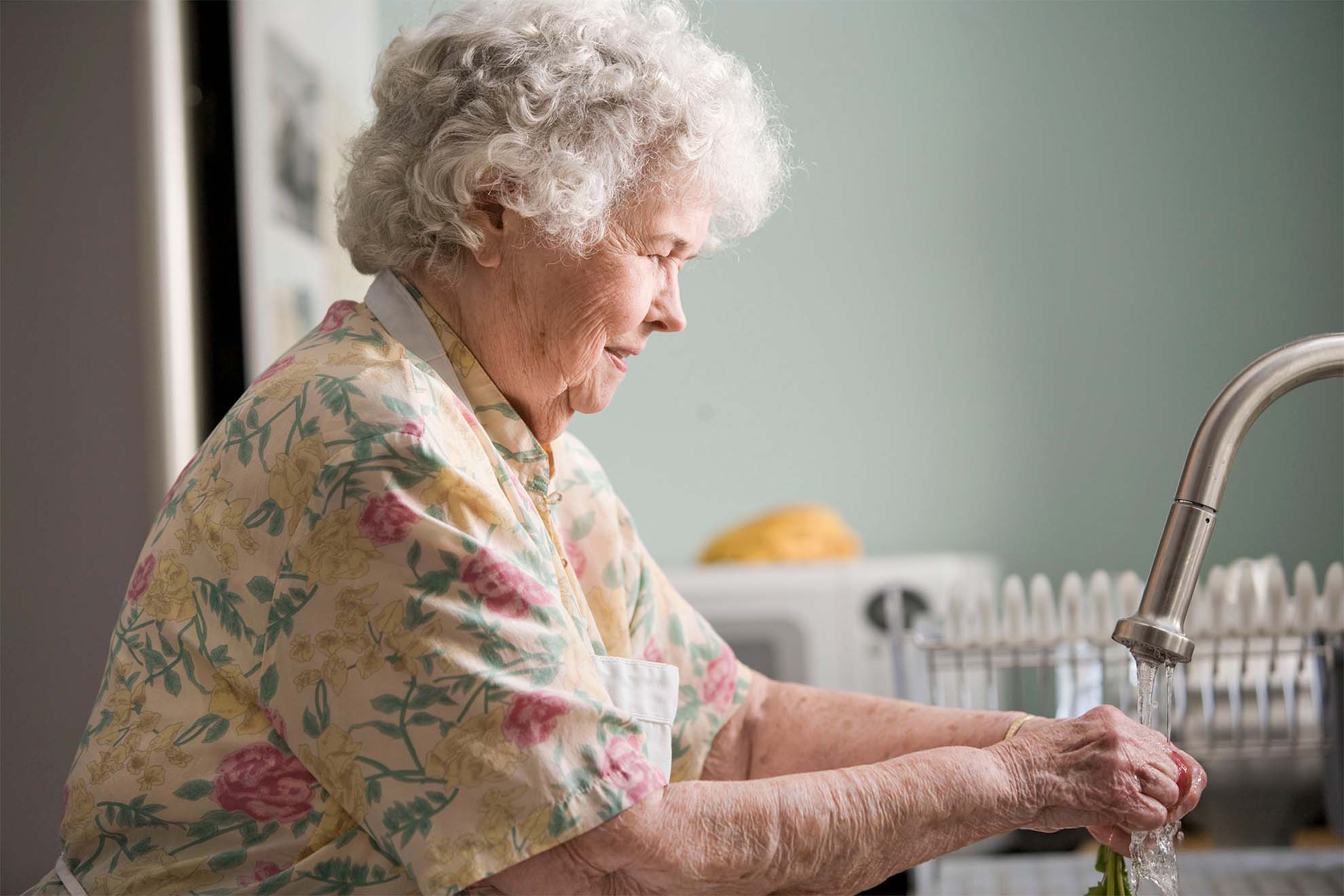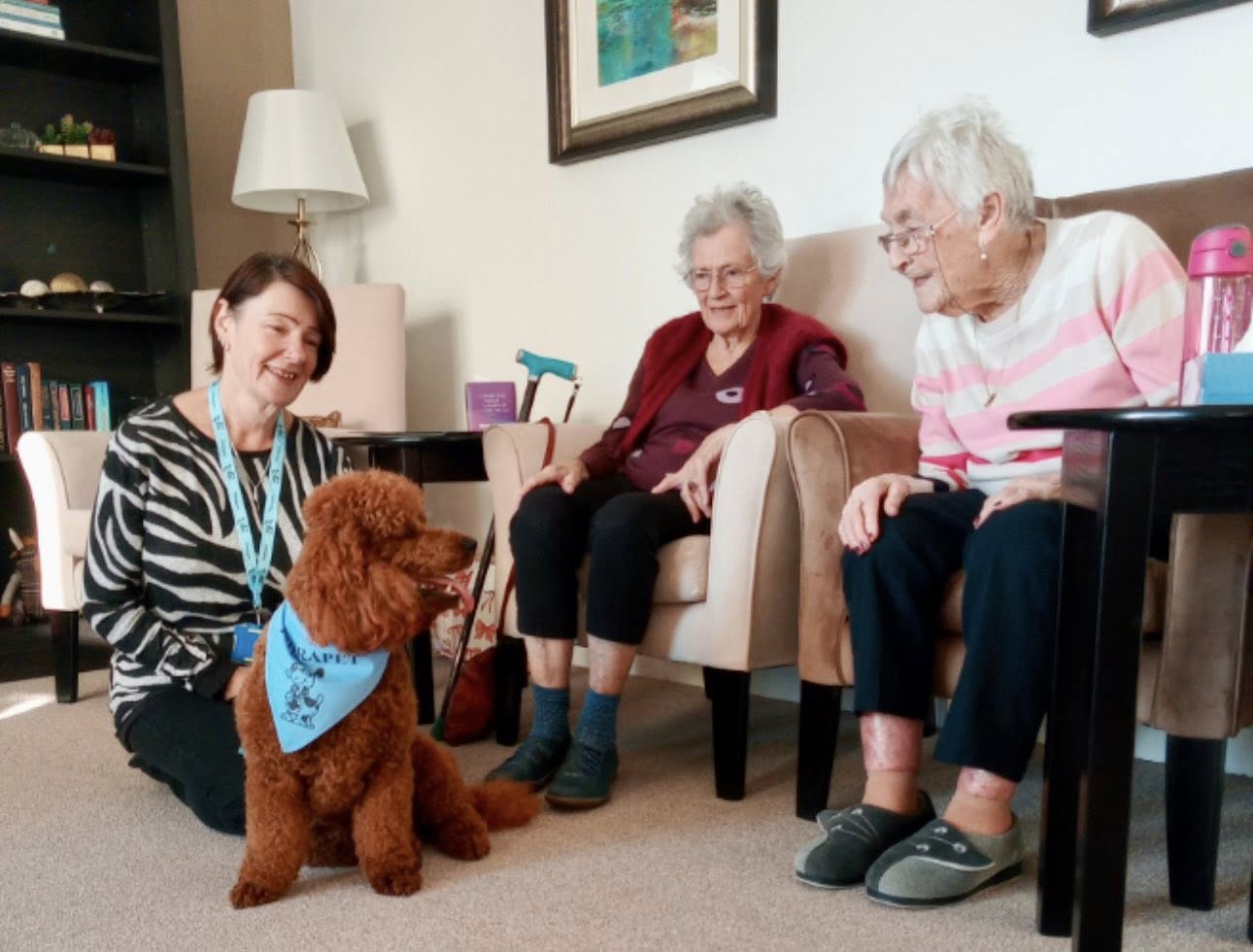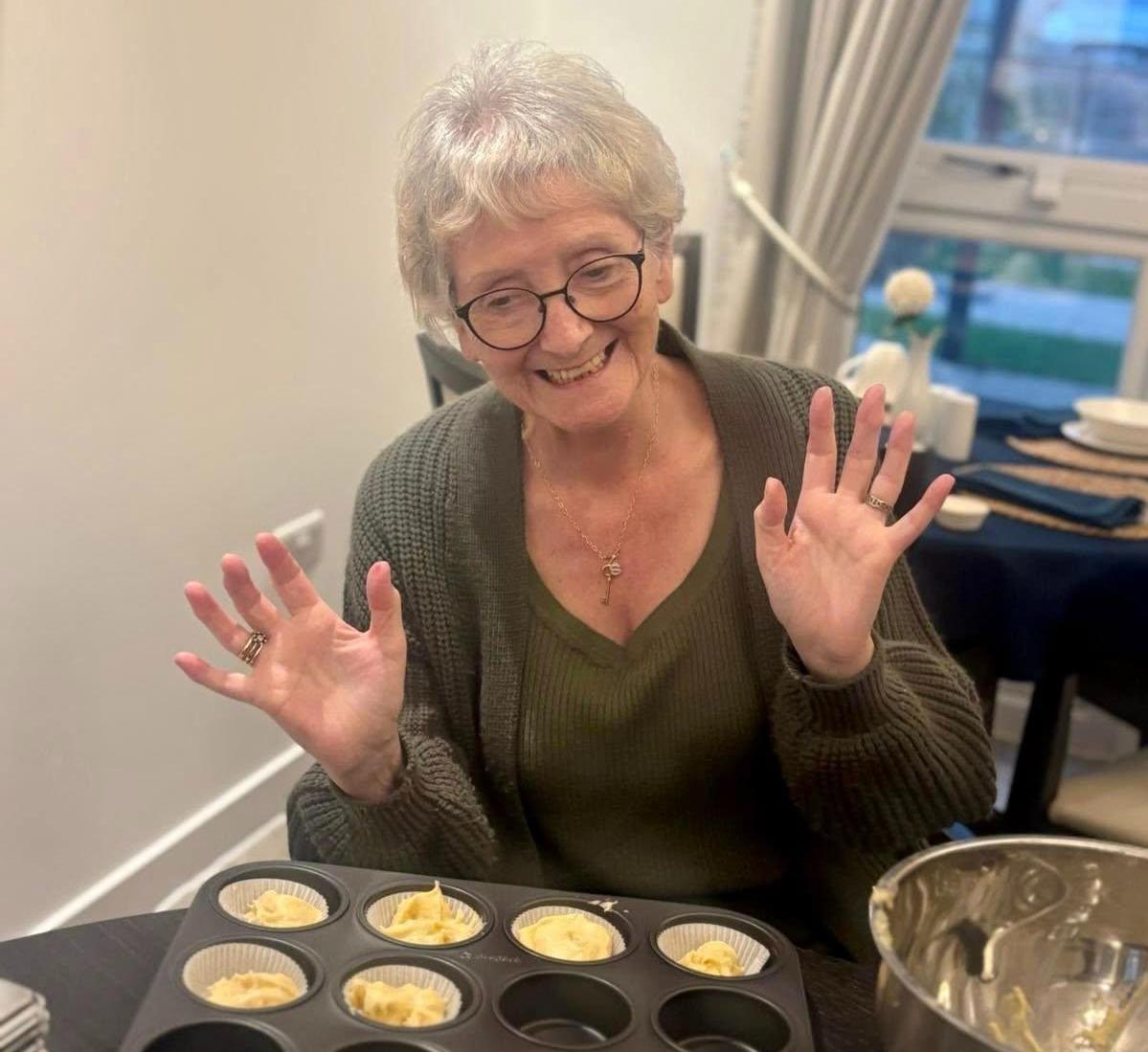Engaging Activities for Dementia Patients to Enhance Quality of Life

For people living with dementia, activities that gently stimulate the senses can bring comfort, connection, and familiarity. Touching soft fabrics, listening to a favourite song, smelling fresh flowers, or feeling the warmth of a cup of tea can help evoke memories and encourage a sense of calm. These small, everyday experiences can spark moments of recognition and joy, even when words or memories feel harder to access.
Meaningful activity is not about keeping busy for the sake of it. It’s about offering opportunities to feel involved and valued. A simple task such as sorting buttons, arranging flowers, kneading dough, or brushing a pet can help someone reconnect with past routines and roles. The focus is on what feels familiar and enjoyable, rather than what is “achieved”. Family members, friends, and carers play a central role in noticing what brings comfort and tailoring activities to suit the person’s needs. With patience, reassurance, and a calm environment, these sensory experiences can help reduce stress, support emotional well-being, and maintain a sense of identity.
Creative Activities for Cognitive Stimulation
Creative activities can offer a gentle way for people living with dementia to express themselves and stay mentally engaged. These activities can help prompt recognition, encourage conversation, and support emotional well-being. They do not need to be complex. What matters is that they feel fun, enjoyable, and familiar.
- Painting and drawing can be particularly helpful. The movement of a brush or pencil can be soothing, and the focus on colour and texture can provide a calming sensory experience. For some people, these activities may evoke memories of past hobbies or work, while for others they may simply bring a quiet sense of pleasure.
- Music can have a profound effect on memory and mood. Hearing a well-known song may spark a moment of recognition or prompt someone to hum or tap along. Group singing or listening to favourite recordings can help people feel connected to others around them. Even when spoken language becomes difficult, music often remains a way to communicate and feel involved.
- Puzzles and word games can also support cognitive engagement. These activities can be adapted so they remain achievable. A simplified crossword, a memory board, or sorting and matching tasks can offer a sense of focus and achievement. The aim is not to test ability, but to create gentle moments of mental stimulation.
- Movement-based creative activities, such as simple dance or rhythmic clapping, can help lift energy and encourage interaction. These can be guided at a slow pace, allowing everyone to participate in a way that feels comfortable.
Meaningful Activities and Household Tasks
Meaningful activities can help people living with dementia feel included and connected to everyday life. These are often tasks that have been part of a person’s routine for many years, such as preparing food, tending to plants, organising belongings, or caring for a pet. Familiar activities can offer comfort because they remind someone of their role within a home and within relationships.
Gardening is a good example of this. The act of watering plants, touching soil, or noticing new growth can encourage a sense of purpose. Even small tasks, such as arranging flowers in a vase or caring for a windowsill herb pot, can be grounding and enjoyable. Being outdoors can also support relaxation and provide gentle sensory stimulation through fresh air, natural light, and birdsong.
Cooking and baking can also help evoke memories. The smell of freshly baked bread or the sound of a kettle boiling may bring back moments from family life. These tasks can be adapted to suit different abilities. Stirring, peeling, sprinkling toppings, or helping set the table can all be meaningful contributions. The goal is not to complete a perfect recipe, but to share an experience that boosts self confidence and feels fulfilling. Household tasks can support confidence too. Folding laundry, pairing socks, polishing shoes, or sorting items into containers can help maintain fine motor skills and encourage focus. These activities also reinforce a sense of identity, especially if the person once took pride in running a home or supporting others.
Social experiences also have an important place. An afternoon tea, a shared walk in the garden, or simply chatting while completing a task can help build connection. Being part of a community, even in small moments, helps reduce feelings of isolation and reinforces belonging.

Living with Alzheimer’s Disease
Alzheimer’s disease and other types of dementia affect memory, thinking, and the way a person makes sense of daily life. Many people experience changes gradually, and the early stages can bring feelings of uncertainty for both individuals and their families. Understanding what feels familiar and reassuring becomes especially important during this time.
Taking part in activities that reflect someone’s interests and life story can offer comfort and stability. Listening to favourite music, looking through photo albums, or taking a gentle walk outdoors can help spark recognition and create moments of connection. Even when memory becomes less reliable, the feelings linked to familiar experiences often remain. Creative activities continue to play a valuable role. Painting, singing, storytelling, and simple craft sessions allow people to express emotions in ways that do not rely heavily on words. These experiences can help lift mood and reduce anxiety, especially when supported with a calm and encouraging approach.
Physical movement can also help maintain wellbeing. Light stretching, short walks, or slow, guided exercise can support balance, circulation, and confidence. Activities can be adapted so they remain comfortable and safe, allowing each person to take part at their own pace. Family members, friends, and carers often notice small changes before anyone else does. Their support, reassurance, and understanding can help maintain a sense of continuity and belonging. Regular conversation, shared routines, and time spent simply being together can be just as meaningful as organised activities.
Dementia in the Care Home Environment
A carefully supported environment can make a meaningful difference to the wellbeing of someone living with dementia. Care homes that focus on comfort, familiarity, and routine help residents to feel safe and reassured. Spaces that are calm, warm, and easy to navigate can reduce anxiety and support independence.
Care homes often offer a range of daily activities designed to encourage involvement and personal expression. These may include gentle exercise sessions, music groups, craft activities, gardening clubs, or social gatherings. The aim is not to keep people busy, but to offer opportunities that feel enjoyable and purposeful. Activities can be adapted to suit differing levels of ability, allowing everyone to take part in a way that feels comfortable.
Many care homes also provide access to outdoor spaces, which can be especially beneficial. A garden or courtyard offers fresh air, natural light, and the chance to connect with seasonal changes. Watering plants, watching birds, or simply sitting outside with a cup of tea can provide relaxation and sensory stimulation.
Staff play a vital role in creating this supportive environment. Those trained in dementia care understand how to respond with patience, reassurance, and respect. They learn to notice small cues, such as changes in mood or energy, and adjust activities gently to suit the individual. Building familiar relationships helps residents feel known, heard, and valued. A person-centred approach is at the heart of good dementia care. This means recognising the individual’s life story, preferences, and strengths, and shaping daily life around what feels meaningful to them. When care is delivered with empathy and consistency, residents are supported to live with dignity and enjoy fulfilling moments throughout each day.
Feeling Valued and Loved
Feeling valued is at the centre of a meaningful life, and this remains true for people living with dementia. When someone is encouraged to take part in activities that reflect who they are, it helps reinforce their identity and sense of belonging. Familiar routines, shared laughter, and moments of connection can all remind a person that they are appreciated and loved.
Small gestures often have the greatest impact. A warm greeting, a familiar song, or a gentle hand to hold can offer reassurance. Taking time to listen, even when conversation is limited, shows respect for the individual’s thoughts and feelings. These thoughtful interactions help build trust and emotional security.
Meaningful activities support this sense of value. Whether someone is engaging in physical activity, helping to fold napkins for lunch, enjoying music with others, or taking part in a gardening group, these experiences reinforce the message that they have a place and a purpose. Sharing these moments with family members, friends, carers, or other residents strengthens relationships and encourages a sense of community.
Celebrations can also play a joyful role. Marking birthdays, seasonal events, or personal milestones brings residents together and creates opportunities for enjoyment. These occasions do not need to be elaborate. Sometimes the most memorable moments come from simple gatherings, familiar scents, or shared stories.
When people feel valued and loved, their confidence and wellbeing can grow. Even brief connections can brighten a day and create lasting positive feelings. In nursing homes, with kindness, attention, and a thoughtful approach, it is possible to ensure that every person continues to feel recognised for who they are.

Benefits of Activity Planning for People with Dementia
Thoughtfully planned activities can make a significant difference to the wellbeing of a person living with dementia. When activities are shaped around an individual’s interests, abilities, and life story, they become meaningful rather than simply routine. This personalised approach can help maintain a sense of identity and create moments of enjoyment throughout the day.
Activity planning also supports emotional wellbeing. Taking part in familiar tasks, creative projects, or gentle exercise can lift mood and reduce feelings of anxiety. These experiences offer opportunities for expression and engagement, helping to maintain confidence and self-esteem. Even small activities, when approached with sensitivity, can bring pleasure and connection. There are physical benefits too. Light movement, such as stretching, walking, or simple household tasks, can help support balance, circulation, and overall health. These activities encourage independence where possible and help maintain existing skills in a comfortable way.
Planning ahead also allows carers to introduce a sense of rhythm to each day. A predictable routine can feel reassuring, especially for those who may find sudden changes unsettling. This gentle structure helps promote calm and gives residents time to enjoy activities at their own pace. Importantly, activity planning supports social interaction. Whether someone is participating in a group activity or sharing a one-to-one moment, these experiences encourage communication and strengthen relationships. Over time, they help nurture a sense of community and belonging.
Community Engagement and Support
Community involvement can play an important part in supporting people living with dementia. Being connected to others helps maintain a sense of belonging and reduces feelings of isolation. Many communities now offer dementia-friendly activities, memory cafés, theatre or music sessions, and local support groups where individuals and families can come together in a relaxed and understanding space.
These community groups provide more than just social interaction. They offer reassurance, shared experience, and a chance to connect with others through online games who understand the challenges and emotions that may arise. Conversations in these settings can help individuals and families feel less alone, while offering practical advice and emotional encouragement.
Local organisations, charities, and healthcare teams often work together to provide guidance tailored to each person’s needs. This might include access to support services, advice on managing daily life, or help with planning for the future. Engaging with these resources can make a meaningful difference, offering structure, stability, and genuine companionship.
Community settings also create opportunities for enjoyable experiences outside the home. Gentle exercise groups, nature walks, creative workshops, and intergenerational activities can help maintain confidence and provide cognitive stimulation while sparking positive memories. These shared moments can help people continue to feel part of the world around them, even as their needs change.
Strong community support can bring comfort not only to the person living with dementia but to family and friends as well. Feeling understood and supported by others can lighten the emotional load and help everyone involved maintain strength and resilience.
Staying Connected and Informed
Staying connected with others is important for emotional wellbeing, particularly for people living with dementia and those who support them. Regular contact with family, friends, and familiar faces can provide reassurance and comfort. Even short visits or phone calls can help maintain relationships and reinforce a sense of belonging.
There are many sources of advice and guidance available for families and caregivers. Charities, local support groups, healthcare professionals, and community organisations offer information on dementia care, including guidance on diagnosis activity ideas, and emotional support. These resources can help people feel more confident and informed when navigating changes over time.
Online communities can also be helpful. Many families find it reassuring to share experiences with others who are going through similar situations. Hearing different perspectives can spark new ideas for activities, communication approaches, or coping strategies.
Keeping up-to-date with research and developments in dementia care may also provide fresh ways to improve wellbeing. This does not mean following every new idea, but simply being aware of approaches that feel personal and meaningful.
Staying connected and informed helps ensure that care remains supportive, compassionate, and centred around the person’s needs and preferences.
Dementia-Friendly Environments
A dementia-friendly environment is one that feels calm, familiar, and easy to understand. Small design choices can make a big difference. In residential homes, clear signage, comfortable seating areas, good lighting, and uncluttered rooms can help reduce confusion and support independence.
Outdoor spaces also play an important role. Gardens, courtyards, and walkways that are safe and accessible allow residents to enjoy fresh air and nature. Being outside, even for a short time, can lift mood and offer gentle sensory stimulation through sounds, scents, and natural textures.
In care settings, thoughtful organisation of shared and private spaces helps residents feel secure. Familiar objects, personal photographs, blankets, and items from home can help maintain identity and spark positive memories. These small touches remind each person of who they are and the experiences that have shaped their life.
A dementia-friendly environment is not only about physical space. It is also shaped by the attitudes and approach of the people within it. Warm communication, patience, and a respectful understanding of each person’s needs help create an atmosphere where individuals feel safe, included, and valued.
Living Well With Dementia at Glencorse Care Home
Engaging activities play an important role in supporting people living with dementia, helping to maintain confidence, encourage connection, and promote mental wellbeing and emotional wellbeing. Whether through creative expression, meaningful household tasks, or shared social experiences, these moments allow individuals to continue living with purpose and dignity. A thoughtful, person-centred approach ensures that activities reflect personal interests, life history, and current abilities, creating experiences that feel both familiar and meaningful.
In care settings, well-planned environments and trained teams can further enhance quality of life. When staff understand each resident’s needs and preferences, they can provide reassurance, consistency, and opportunities for positive interaction each day.
If you are considering care for a loved one, we welcome you to get in touch with Glencorse Care Home in Penicuik, Midlothian. Our experienced team provides specialist dementia support within a warm, encouraging, and well-structured environment. We are always happy to discuss our approach to care and answer any questions you may have. Contact Glencorse Care Home today to learn more or arrange a visit.






